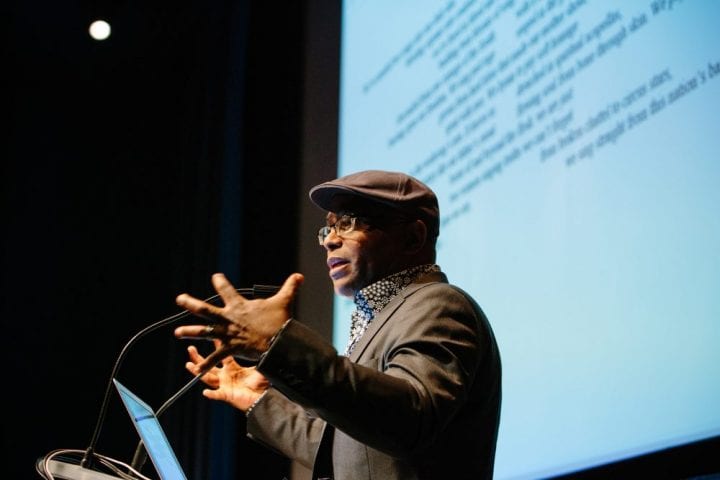
Thinking Outside the Book: Tyehimba Jess and OLIO
March 19, 2018
By Gabrielle Bates
Anastacia Renée: “Do you feel free on the page?”
Tyehimba Jess: “I feel opportunity.”
*
Seeing and hearing Tyehimba Jess read from his Pulitzer-Prize winning collection Olio at SAL two weeks ago has me rethinking every parameter and practice I’ve ever accepted as fixed. The expansive, acrobatic, mechanical wonder of Jess’s syncopated sonnets and double ghazals, in particular, have captivated my imagination. How many different readings can a single poem afford? How expansive and varied of a world can it create? What interactive pleasures can the book, as a physical object, afford us that we aren’t utilizing yet? I feel as if, before Olio, so many of my writing and thinking muscles were neglected, atrophying without my knowledge. Now they’re waking up, stretching out.
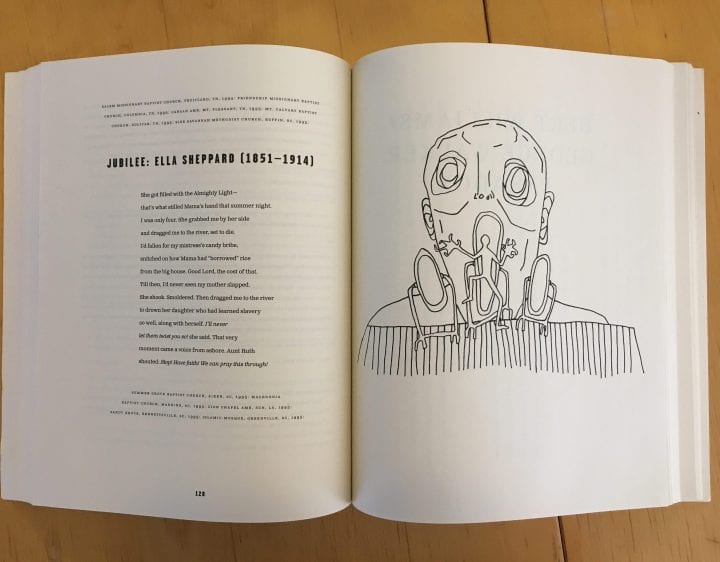
While I understood that Jess’s poems such as “Millie-Christine: On Display” and “Dunbar-Booker Double Shovel” were contrapuntal (in that they could be read both down in columns and across as longer lines), until I saw Jess perform the poems live, I didn’t know they could also be read in a “frenetic” order: repeating lines, jumping in any adjacent direction, indefinitely. The poems, read in this way, become interactive marvels, attune to the whims of the moment and thus, alive, electric to behold. Seeing Jess read underscores the levels of performance at play in this book: Olio exposes and complicates—via performance—a particular history of performance.
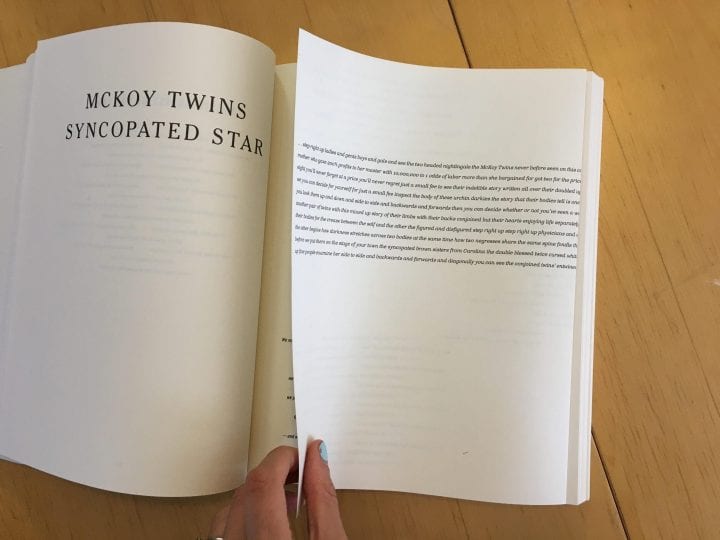
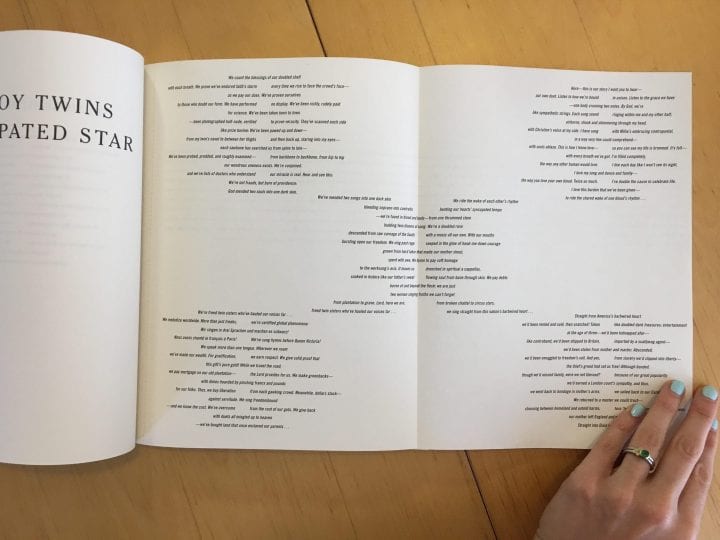
Two weeks after his reading in Seattle, I’m still thinking about Tyehimba Jess, about how his example is simultaneously one of high standards of craft and high moral standards, how crucial it is for me, as an emerging writer, to see that integrity embodied. Not only do Jess’s poems push forms to their bursting points and then some, but the responsibility he feels toward the historical figures populating his work is palpable, inspiring.
Even when writing about their degradation and oppression as minstrel artists and slaves, Jess affords these persons a dynamic humanity and agency. Henry “Box” Brown, who mailed himself to freedom in a box; Millie and Christine McKoy, conjoined twins who ultimately bought their own plantation; and many other characters come back to life in the pages of this revolutionary book. At SAL’s reading, Jess talked about the onus he felt to “do right” by these characters, a healthy reminder to any of us who would animate the mouths of history in our creative work.
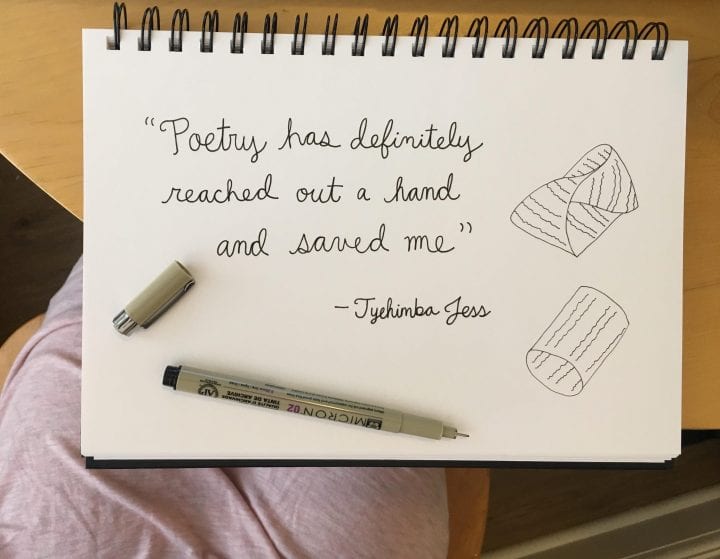
Gabrielle Bates is a writer and visual artist from Birmingham, Alabama. Currently, Gabrielle is the Social Media Manager of Open Books: A Poem Emporium, managing editor of the Seattle Review, an editorial assistant and contributing editor for Poetry Northwest, the official voice of Broadsided Press on twitter, and a contributing editor for Bull City Press. She volunteers as a poetry mentor through the Adroit teen mentorship program and teaches occasionally as a spotlight author through SAL’s Writers in the Schools (WITS) program. Gabrielle has received funding and fellowships from the Bread Loaf Writers Conference, Artist Trust, Hugo House, and the Mineral School Artist Residency, and her work has appeared in Poetry, New England Review, jubilat, Washington Square, and elsewhere.